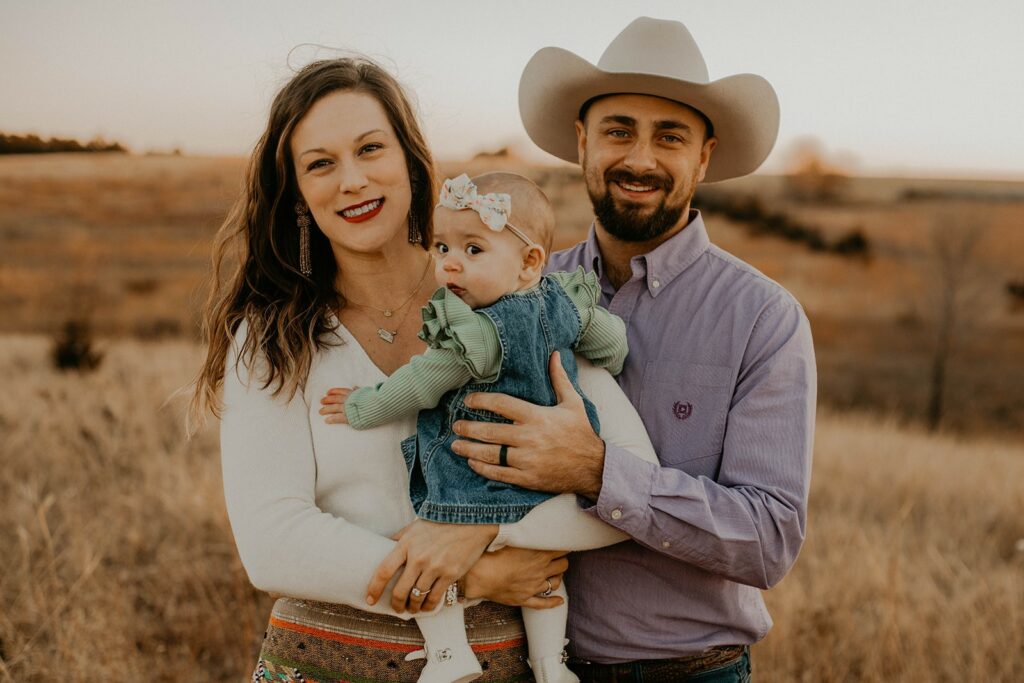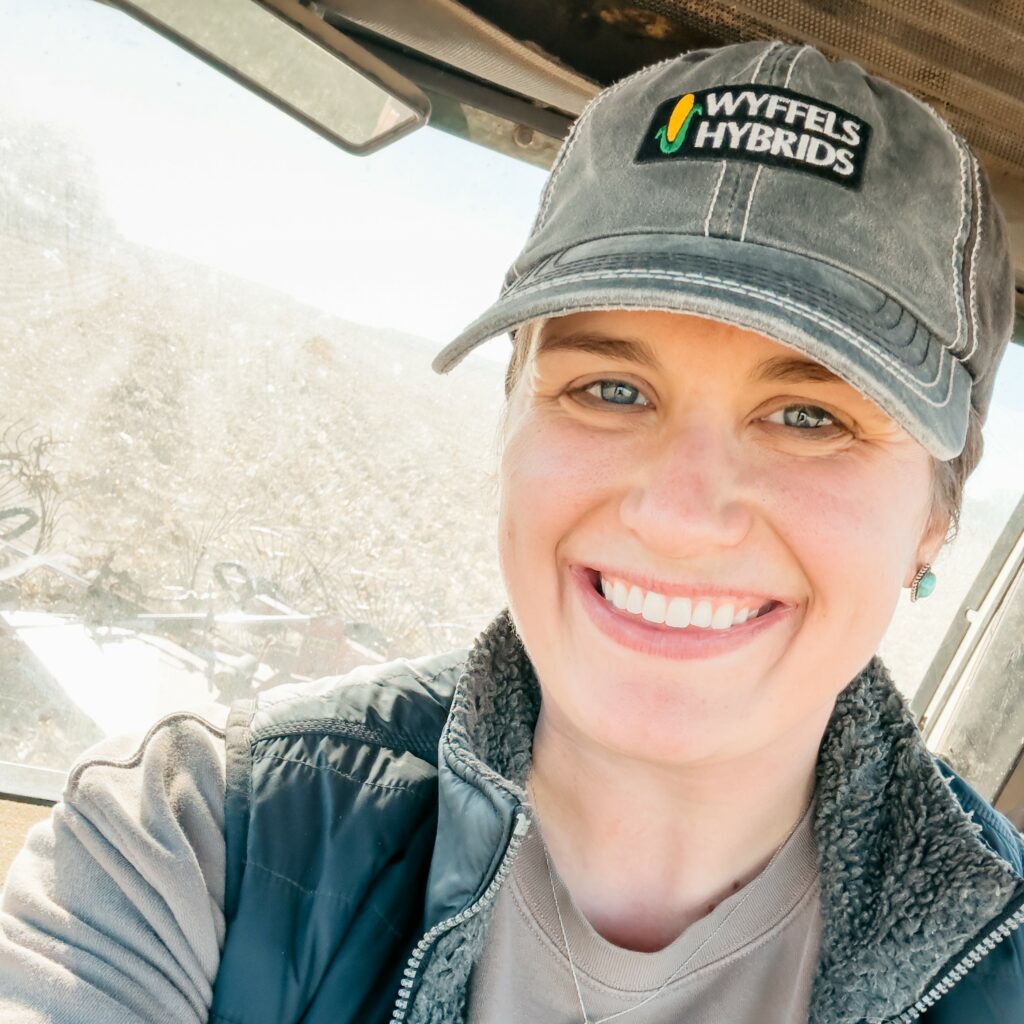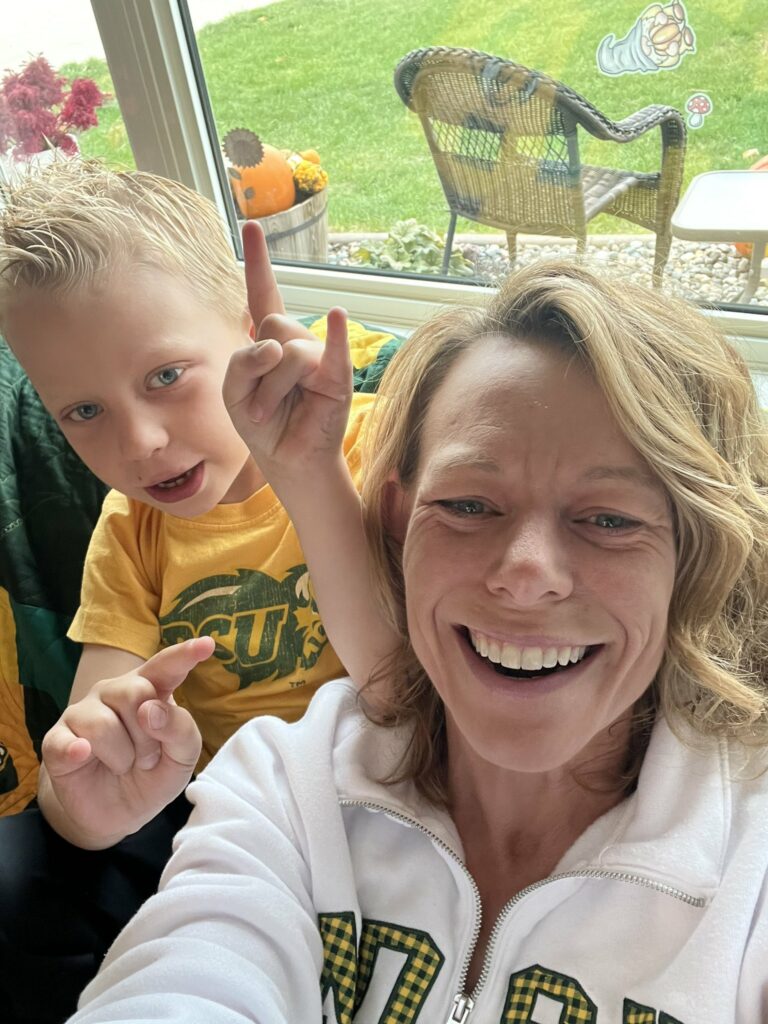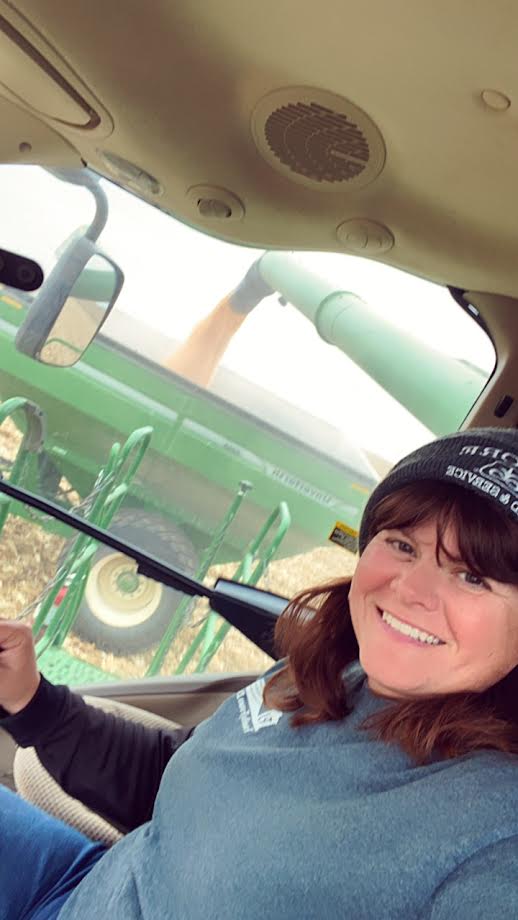Conservation-Focused Farmer Julia Williams

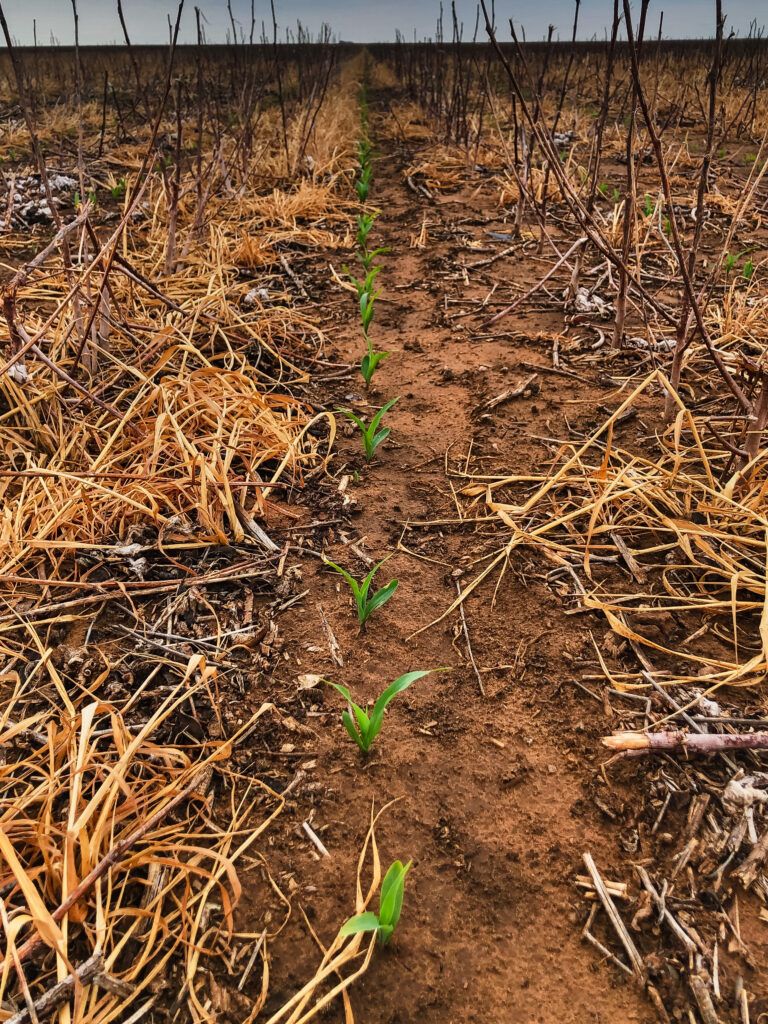
Texas farmer Julia Williams and her husband, Russell, have a conservation mindset. Putting that mindset into practice is not easy with sandy soil.
My parents raised me near Austin, Texas on a ranch that they turned into a wild bird sanctuary. We had a number of gardens and lived with the mindset of preserving local ecosystems. Eventually I ended up in D.C. where I met my husband, Russell. The two of us came back to Dalhart, Texas (in the Panhandle) to farm near where he grew up. Together we raise corn, cotton, wheat, milo, and some beef cattle. And wow – it has been such an education. Farming is so different from the life that I had growing up. I understood the basic concept of growing food. But doing this for a living has given me a new respect for farmers because of the hard work, the long hours, and being at the mercy of mother nature.
Together, Russell and I have a conservation mindset. We care deeply about the land. It’s our livelihood, our roots, and our family legacy. We want to protect it and do what we can to give our son Whitaker the opportunity to farm if that’s what he wants. But putting that mindset into practice is not easy.
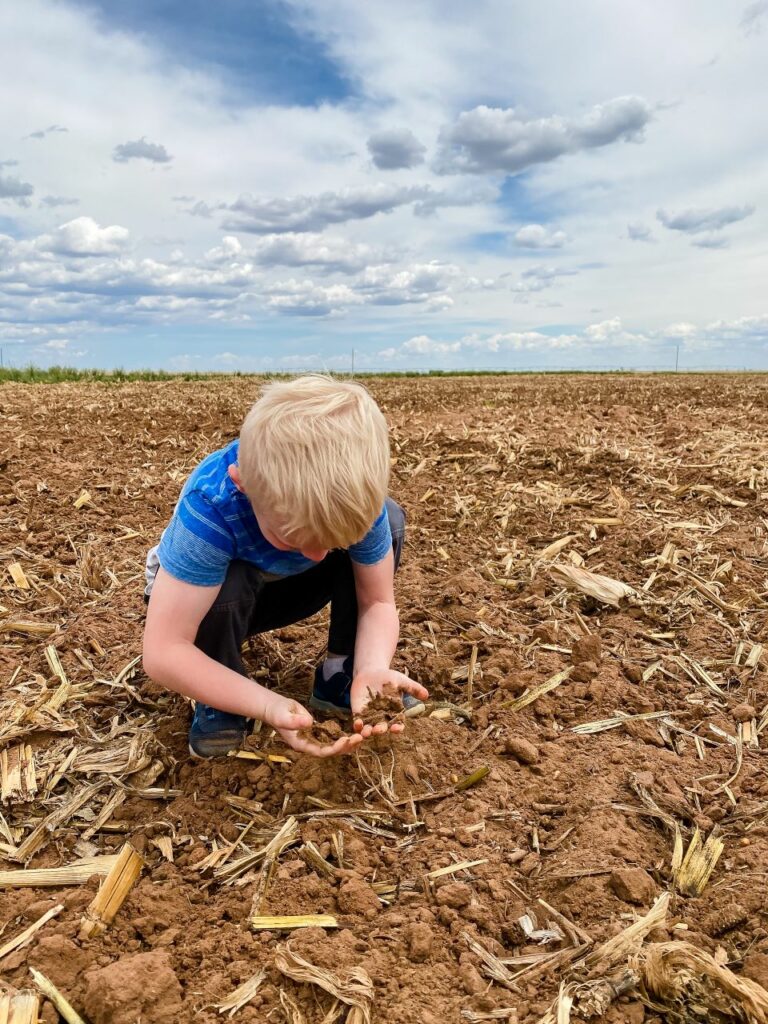
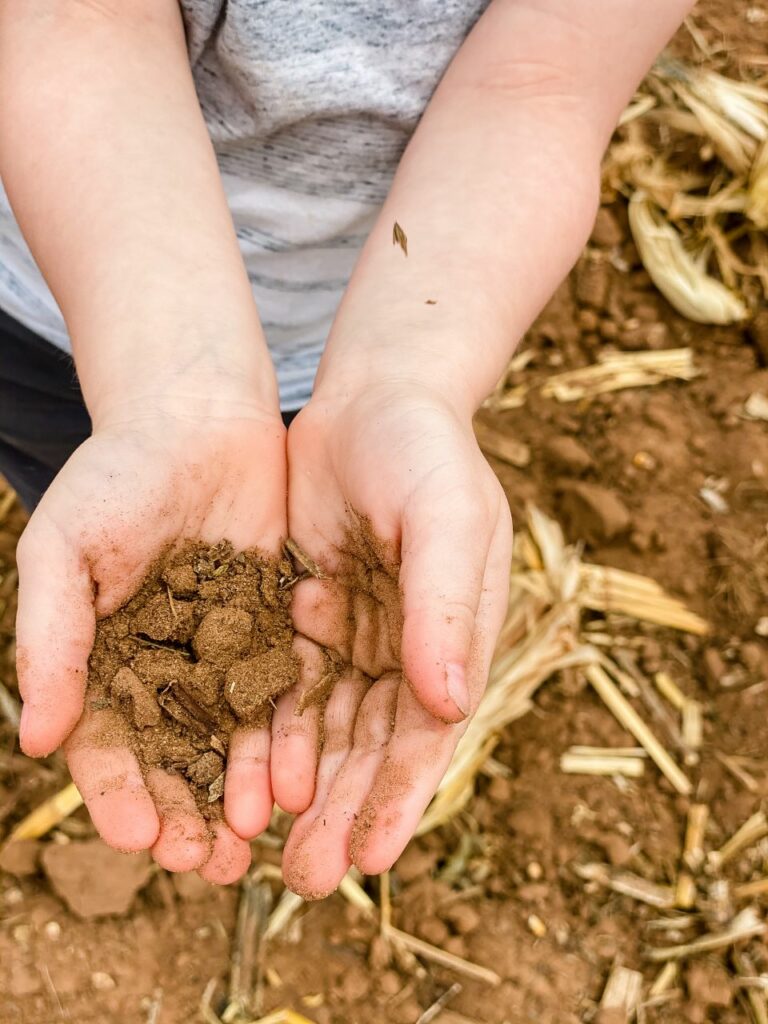

We believe that conservation and sustainability have to start by understanding our land. Because of our location, we have very sandy soil, and we don’t get much rain. Those have been big factors in determining the best crops we should plant to farm sustainably. This year, we’re participating in a research project to get more data about our soil. We’re hoping that the data from this project will help understand how we could capture and store carbon in our soil to help fight climate change.
Two researchers (one from Texas A&M, one from Texas Tech) will analyze soil samples from fields around the country. They are coming to our farm to analyze our sandy soil. The results will tell us how much carbon our soil type can hold.
We’ll use that data to better determine how and what to plant. For example, if our soil can hold more carbon than we think, we’ll use cover crops in the fall to help capture more carbon from the atmosphere. If it can’t hold much carbon, we would use more water-wise farming practices like planting crops that do not require tillage and using crop rotations.
